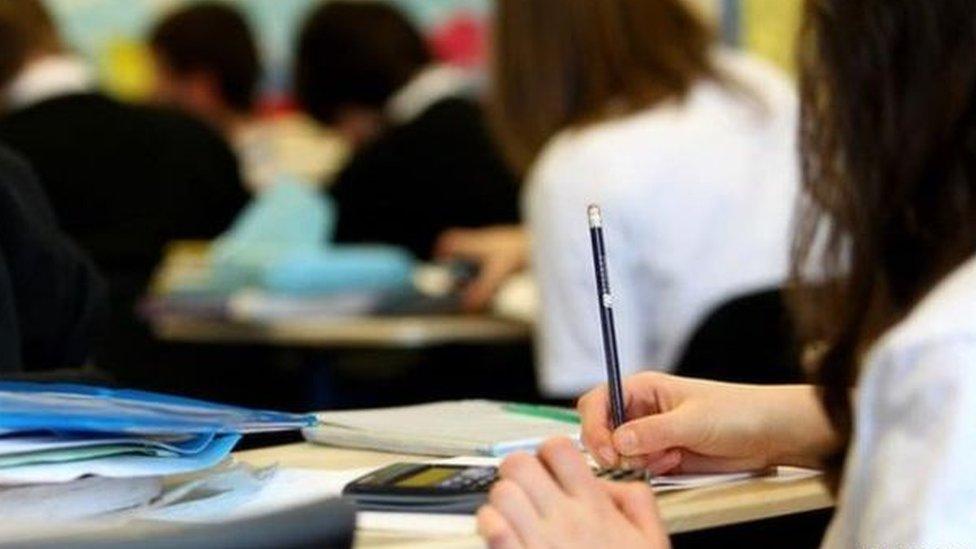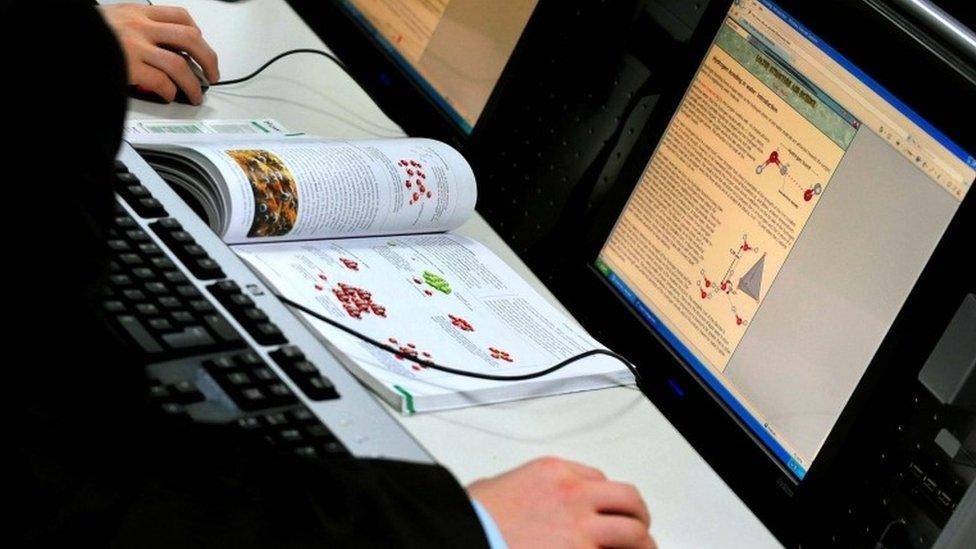Scots secondary teachers vote to take industrial action
- Published

Secondary teachers in Scotland are set to take industrial action over their "excessive" workload.
Members of the country's largest teaching union, the EIS, have voted overwhelmingly for a work to rule.
Their concerns are related to the work linked to the new school qualifications.
Education Secretary John Swinney said: "The result of today's ballot is disappointing albeit on what appears to be a low turnout."
He added: "Given that we are addressing the issues of teacher workload, industrial action in our schools would not be in the interests of anyone, least of all pupils and parents. "
The union said members voted in favour of action by 95% to 5%.
The work to rule will be targeted at the Scottish Qualifications Authority (SQA) - there is no suggestion of school activities being affected.
Possible action might include refusing to provide cover for colleagues absent on SQA business and not attending SQA seminars and sticking to working time agreements on any work associated with developing the qualifications.
'Teachers' frustration'
The union said it would be issuing guidance to members immediately over what they should stop doing.
Earlier this week, the Scottish government called on unions to come up with ideas for cutting the workload.
General secretary Larry Flanagan said: "Scotland's secondary teachers have voted overwhelmingly in favour of industrial action against the severe workload burden that has been generated by the Scottish Qualifications Authority.

"This ballot result reflects the frustration of Scotland's secondary teachers over the excessive assessment demands being placed on them and their pupils, particularly around unit assessments at National 5 and Higher; and the EIS now has a very clear mandate to implement an immediate work-to-contract in relation to SQA activity."
Mr Flanagan added: "The target of this industrial action is both SQA bureaucracy and excessive internal unit assessment, with its associated workload burden for teachers and unacceptable assessment pressures on students.
"It is not our intention that this action should impact directly on pupils, and teachers will continue to teach classes normally and to assess pupils' work.
"We will be issuing guidance to our members advising which SQA-related activities they should withdraw co-operation from, and which activities teachers should continue to undertake as normal."
'More to be done'
Mr Swinney said that he and First Minister Nicola Sturgeon were already taking steps to tackle bureaucracy and "free up teachers to teach" and were considering further measures.
These included creating a working group, involving the teacher unions, to focus on what more needed to be done to embed the new qualifications and to reduce assessment workload.
He said the chief inspector of education had written to schools with guidance on national expectations on qualifications and assessment that would further reduce unnecessary workload on teachers and provide clarity.
"Schools have a responsibility to apply this guidance, which will directly assist in reducing workload." he said.
"The concerns raised by teachers are being addressed - but we recognise there is more to be done to free up our teachers to teach for the benefit of all in our education system."
A spokesman for the SQA said: "We are disappointed the EIS has decided to take this action, particularly when we have taken steps to alleviate teacher workload without compromising national standards and maintaining the integrity and credibility of the qualifications.
"The priority of the entire education system is to work together to ensure the best possible learning opportunities are provided to our young people. We are deeply concerned that, as a result of this action, these opportunities could be jeopardised."
- Published10 June 2016

- Published1 May 2016
